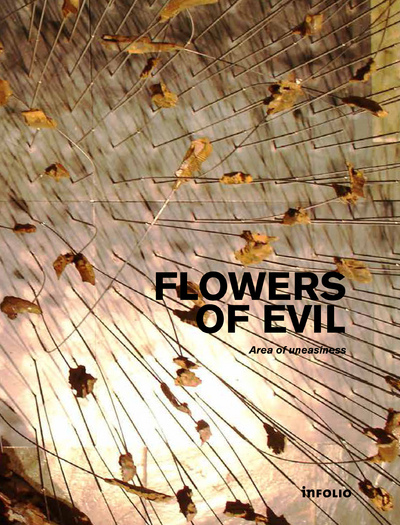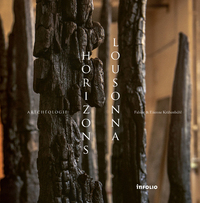Nous utilisons des cookies pour améliorer votre expérience. Pour nous conformer à la nouvelle directive sur la vie privée, nous devons demander votre consentement à l’utilisation de ces cookies. En savoir plus.
Flowers of Evil. Area of uneasiness
EAN : 9782884743662
Paru le : 30 sept. 2015
-
 Livraison gratuite
Livraison gratuite
en France sans minimum
de commande -
 Manquants maintenus
Manquants maintenus
en commande
automatiquement -
 Un interlocuteur
Un interlocuteur
unique pour toutes
vos commandes -
 Toutes les licences
Toutes les licences
numériques du marché
au tarif éditeur -
 Assistance téléphonique
Assistance téléphonique
personalisée sur le
numérique -
 Service client
Service client
Du Lundi au vendredi
de 9h à 18h
- EAN13 : 9782884743662
- Réf. éditeur : 849411
- Editeur : Infolio
- Date Parution : 30 sept. 2015
- Disponibilite : Manque sans date
- Barème de remise : NS
- Nombre de pages : 72
- Format : H:210 mm L:161 mm E:8 mm
- Poids : 240gr
-
Résumé :
SOMMAIRE CONTENTS :
Seeing, dreaming or thinking of this country, of this war, of the war, of the substance of life that was snatched up and torn by history : Tthis book makes us feel the weight of the lebanon tragedy, not as a documentary but as a lived reality.
Etienne Krähenbühl is a swiss artist and a sculptor. His work is defying gravity and physic laws. The artist works with the four elements to transform the surface of his sculptures that also display time as another of these elements. The traces of rust on his metal sculptures reveal the precious antiquity of the material and show the passage of time, which is also presented in its existential dimension.integrates the passage of time into his metal sculptures. Thanks to the four elements, the surface of his massive constructions is transformed. From the traces of rust we receive the precious antiquity of the material. From 1996 he used the alloys of shape memory form and discovered with Dr Rolf Gotthardt of the EPFL (Ecole polytechnique fédérale de Lausanne) the numerous aspects of these alloys, often referred to as "intelligent". So the artist not only presents the passage of time as a supplementary element but he also présents it in its existential dimension.
David Collin was born in France but lives in Switzerland. His was born in France in 1968 and now lives in Fribourg. His first narrative book, called "Phantom Train", was published by Seuil in 2007. He is the co-author of several collective publications. Several of his texts appeared in reviews and he contributed to several collective works one of which is "Le Royaume intermédiaire" (J.B. Pontalis, Folio essais, Gallimard, 2007) or "Par-dessus l'épaule de Théodore - Carnets du Rwanda" (built around photos by Jean-Luc Cramatte, with Nimrod, Christian Doumet and Bruno Doucey, published by Labor et Fides, Genève, 2005). P He is also a producer and director atin the Radio Suisse Romande - Espace 2, for which he co-produces Sonar, a documentary programme.
Imane Humaydane was born in 1956 in Ayn Enoubis a lebanese anthropologist. (Lebanon). After studying anthropology, Sshe did research on the missing of the civil war. In 1997, she wrote about women caught up in the war in Baa Mithl Beith Mithl Beirut. The english version of the book, A town with the nerves bared, was published in 2004. Her work is a work of memory and of remembrance. After the declaration of war she witnesses the clashes between the communities which will empty the druze mountains of some of its inhabitants. After studies in anthropology in the American University of Beirut she did research work on missing persons during the civil war (nearly 1700 people). In 1997 in order to sanitize all the violence of this war she published Baa Mithl Beith Mithl Beirut (Al Massar), about women caught up in the war and was published in 2004 in the " Verticales" under the title "A town with the nerves bared". She continued her work on memory in her second novel "Wild Blackberries" and in "Other lives" which came out in 2008.
SOMMAIRE CONTENTS :



